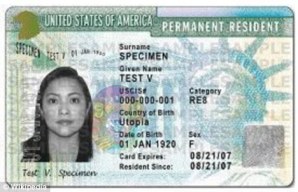By W. John Yahya Vandenberg
USCIS has published the most recent asylum statistics, and you can see the Syrian asylum statistics as of May 2015 (thank you, AILA, for publishing this!). There are some surprises, and we hope this will assist Syrians make the best immigration decisions while they are here.
Good news first…
What do you find in the statistics? Well, I’m shocked that between 2011 and March 31, 2015, only 4,176 Syrians had applied for asylum! I thought there would be many more, considering the murderous civil war that has now been raging since Spring 2011. A man at a site recently hit by what activists said was a Scud missile in Aleppo’s Ard al-Hamra neighborhood, February 23, 2013. REUTERS/Muzaffar Salman
A man at a site recently hit by what activists said was a Scud missile in Aleppo’s Ard al-Hamra neighborhood, February 23, 2013. REUTERS/Muzaffar Salman
But I’m also pleasantly surprised to see the approval rates — 83% so far in 2015, and 81% in 2014. That’s significant, and a real positive sign for those Syrians seeking safety in the United States. So long as they tell the truth, and their asylum case meets statutory requirements, it is quite likely they will be approved.
But what does it take to get an asylum case approved? This is as good a place as any to say what asylum is, and what it isn’t. Syrians must be aware that just because your country is dangerous and war-torn, USCIS doesn’t care. Really. They don’t. There are a lot of countries in conflict; in fact, as of August 2014, there were only 11 countries in the entire world where there wasn’t conflict.
And don’t believe advice that you’ll qualify for “humanitarian asylum.” Humanitarian asylum does not mean you get asylum because you are from a war-torn, dangerous country. It only applies to people who experienced so much terrible personal persecution in the past that it would still be inhumane to send you back even though country conditions are better . Check out Matter of Chen and Matter of L-S- and read them for yourself. That’s the law on humanitarian asylum. Just because a relative was randomly killed by a sniper or an explosion, or there is fighting in your hometown, or your country is in the middle of a terrible civil war, that’s generally not enough.
On the other hand, a person may qualify for asylum if they fear returning to their home country based on a qualifying ground, such as political opinion, religion, or other designated categories. If you are afraid to return to your country and think you might qualify for asylum, schedule a consultation with the best, most experienced, and honest immigration attorney you can find. He or she will analyze your history, fear, family, and other factors, and tell you what they think about your asylum claim. With this advice, you can decide whether or not you might qualify for asylum, and your chances of success.
Despite the high approval rate, the numbers tell a sadder story –there still remain 2,170 Syrian cases pending and awaiting a decision. That’s a lot of Syrians — more than half of all applicants since 2011! — without an answer on their applications. Syrians are wondering why there is such a delay. And when people wonder, they either ask people who don’t know the answers, or they make up their own reasons out of their past experiences or internet research.
Why the delay? Is it me?
To my knowledge, there is no conspiracy against Syrian asylum seekers, or any special reason for delaying Syrian cases . USCIS has confirmed that they are randomly selecting a small number of asylum applications and scheduling them for interviews within 42 days. But the vast majority are on hold for a year or two. This causes understandable frustration among the Syrian community (and trust me, every other community as well). One guy files for application, gets his asylum interview in a month. Another guy files his, and more than a year later he has no interview. Is there something wrong with him or his background? Is it because the other guy has a good lawyer? No. It’s just raw numbers. The Syrian community needs to look at the big picture — they are not alone. In fact, Syrians are only a small percentage of all the asylum cases filed and pending.
USCIS has published its statistics for asylum, most recently from February 2015. In its “Asylum Office Workload” document, as of February 2015, there were 78,821 asylum applications still pending — meaning no decision had been made, whether because the interview had not yet been scheduled, or because USCIS was still deciding whether to grant asylum or not. Compare this with July 2014, when there were 55,324 applications still pending. The number of pending applications is going up, not down, even though USCIS is hiring new officers and bringing in former asylum officers to process this huge surge of cases.
The reason for the backlog is the record number of mothers and children seeking refuge from Mexico and Central and South America. USCIS, understandably, is using its resources to administer credible fear interviews to the families coming across the border in such huge numbers; if the mother/child meet the credible fear standard, they are eligible to pursue asylum status and remain in the United States. So long as these refuge seekers keep coming to the border, USCIS is going to continue to see the number of pending asylum cases go up, and wait times are going to get longer and longer for those who have already applied.
Any options?
So, what should Syrians do? It is of critical importance that Syrians apply for and maintain Temporary Protected Status (“TPS”) if they are eligible to do so. (NOTE: the deadline for new Syrian TPS applications is JULY 6, 2015 – so apply now if you qualify and have not already!)
You can think of TPS as “green card lite.” TPS gives you the ability to legally work in the USA and travel. They can study, they can drive, they have many of the rights of green card holders because of TPS. Essentially, TPS ensures you remain in the USA for a long, long time. A basic touchstone of immigration law is that you take what you can get, when you can get it. The deal can always get better later, with a new law, a new relationship, a new job, or becoming a victim of crime or spousal abuse — anything. So long as you are in the United States, you’ll likely be eligible for something new and better, so long as you maintain TPS or some other lawful status.
Some Syrians are skeptical about TPS, and worry that it could end at any time. I don’t agree with that; Hondurans have had TPS renewed every year since 1999 — that is 17 years and counting! During these 17 years, many Hondurans have obtained a green card through work, or marriage, or even their children. Immigration, I always say, is a marathon, not a sprint.
Also, Syrians should keep in mind that the Syrian civil war is likely to drag on for a long time. It will never be the same country they left, even if the war ended today. Any doubts? Ask the Bosnians.

If you are a Syrian and considering whether or not to apply for TPS, my advice is APPLY. You can always leave it behind, but please take advantage of it now. As Syrian passports start to expire (with few avenues to extend or renew), it is getting harder, not easier, to come to the United States. And the United States is still a place where Syrians can not only survive, but thrive. Dubai may be glitzier, but remember that protections for non-nationals are slim, and can be rescinded at any time, for any reason. In the United States, your civil rights are more protected than in most countries of the world, and with TPS, so long as you work hard and don’t break the law, your stay is assured for years to come.
Can’t we speed up this process?!?!?!
We are often asked by Syrians if we can speed up the asylum process. Perhaps, but it is on a case-by-case basis, and you should consider carefully whether to do something to try to get a resolution of your case, or not.
Some Syrians ask about filing a Mandamus lawsuit to get their asylum applications heard.  A “Mandamus” is a petition to a District Court Judge requesting that the USCIS adjudicate an application. The Judge cannot force USCIS to grant your asylum; she can only order them to make a decision on your case. Some District Courts routinely grant them. We are hearing accounts of the lawsuit being filed and the interview being granted shortly after. Other courts are quite hesitant. It depends on the District Court. For example, if the government tells the District Court Judge that they have “security concerns” about the asylum applicant, the Judge may not issue the mandamus, allowing the government more time to determine if the person is a threat or not. Alternatively, the Asylum Office could agree to make a decision, then deny the asylum if the person maintains lawful status, or “refer” the case to the Immigration Judge for removal proceedings if they aren’t. It’s a personal decision whether or not to pursue this course of action. And it is generally expensive. You should also be prepared for an outcome you may not like.
A “Mandamus” is a petition to a District Court Judge requesting that the USCIS adjudicate an application. The Judge cannot force USCIS to grant your asylum; she can only order them to make a decision on your case. Some District Courts routinely grant them. We are hearing accounts of the lawsuit being filed and the interview being granted shortly after. Other courts are quite hesitant. It depends on the District Court. For example, if the government tells the District Court Judge that they have “security concerns” about the asylum applicant, the Judge may not issue the mandamus, allowing the government more time to determine if the person is a threat or not. Alternatively, the Asylum Office could agree to make a decision, then deny the asylum if the person maintains lawful status, or “refer” the case to the Immigration Judge for removal proceedings if they aren’t. It’s a personal decision whether or not to pursue this course of action. And it is generally expensive. You should also be prepared for an outcome you may not like.
Sometimes, a Congressperson can assist. You can find the contact information for your Senators and Representatives on-line. They can inquire through the USCIS Congressional Liaison to learn where your case is. But in my experience, there is little they can do to speed up the process in most cases.
As in most things law-related, there are exceptions . For example, we were successful in requesting the Asylum office to expedite an asylum decision for a man whose wife and children remained in Syria, where they were obviously in danger. This is because asylee’s family members can apply to bring their wife and children to the United States. Another time, a Senator’s office was helpful in obtaining an asylum interview for a young Syrian who would be denied a college scholarship and financial aid if he didn’t have asylum. These are cases that had an emotional reason for everyone to get involved, including an asylum officer. They all wanted to help in these cases. Other times, where there wasn’t an emotional incentive, we were unsuccessful in expediting the case.
To be fair, the Asylum Office has a strong argument to delay interviewing most asylum cases. In the case of Syrians, most of have TPS, which means they are here legally, working and traveling. The Asylum Office understandably feels they should first interview the children and mothers sitting in detention centers without any possibility of being released. Recently, Associate Attorney Katelyn Hufe represented a child client at the USCIS Newark Asylum Office (which is actually located in Lyndhurst, by the way). She said that almost everyone in the waiting room was a child! That is genuinely sad. And the story behind the statistics is that the Asylum system is flooded. That is the reason Syrians are not getting scheduled for asylum interviews. It is not because the Asylum Office or the Department of Homeland Security is against Syrians. It’s just the crushing weight of 80,000 asylum applications, and only 350 asylum officers in the entire United States to adjudicate them.
In the end, Syrians should apply for all the benefits that they qualify for. TPS is ideal, and asylum can be a long-term plan. If you fall in love with a US citizen or greencard holder, that’s great, too. If you are a victim of crime, be sure to cooperate with the police, no matter what your status is, so you may qualify for a U visa. If your US citizen or green card spouse abuses you — it doesn’t matter if you are male or female — you may qualify for VAWA. Our advice is for Syrians to consult with a good, honest, experienced immigration attorney — not a translator, not an accountant, not a family friend — to best determine what your options are. There is no substitute for asking a good immigration attorney for advice; good immigration attorneys not only have years of experience and access to information not generally available to the public, but they also have the benefit of living through the progress of many immigration cases. If you have questions about your options in asylum, TPS, or even obtaining lawful U.S. Permanent Residence through a green card, contact our office and set a consultation. We’ll do our best to give you all your options, so that you can make the best decision for you. If you are in a different part of the United States, we’ll do our best to find you a good local attorney.
Thanks to Nadeen Aljijakli, author of “Syrians Under Fire: Seeking Asylum in America” for her assistance in writing this article!
 First, all USCIS offices are closed until at least June 4, so no interviews for greencards or naturalization. The embassies and consulatesare closed as well, so no one is receiving a visa. Immigration courts for non-detained cases are closed, too, until June 12, which for some immigrants is great news, but for others means they will wait months or even years for their hearing. Everything will be rescheduled, of course. But until then, everything is on hold.
First, all USCIS offices are closed until at least June 4, so no interviews for greencards or naturalization. The embassies and consulatesare closed as well, so no one is receiving a visa. Immigration courts for non-detained cases are closed, too, until June 12, which for some immigrants is great news, but for others means they will wait months or even years for their hearing. Everything will be rescheduled, of course. But until then, everything is on hold.
 Так что это значит для вас, вашей семьи или вашего бизнеса? Как и во многих вещах в жизни, некоторым иммигрантам повезло, некоторым не повезло, а некоторым, вероятно, не хватает времени.
Так что это значит для вас, вашей семьи или вашего бизнеса? Как и во многих вещах в жизни, некоторым иммигрантам повезло, некоторым не повезло, а некоторым, вероятно, не хватает времени.

 First, an experienced and trustworthy immigration lawyer might be able to figure out a way to get you something better than DACA. Maybe you or a DACA you know has been a victim of crime, or trafficking. Or maybe they qualify for Amnesty through a parent or family member. If you just filled out DACA forms, you don’t know. Because DACA appears to be coming to an end, now is the time. To get an idea,
First, an experienced and trustworthy immigration lawyer might be able to figure out a way to get you something better than DACA. Maybe you or a DACA you know has been a victim of crime, or trafficking. Or maybe they qualify for Amnesty through a parent or family member. If you just filled out DACA forms, you don’t know. Because DACA appears to be coming to an end, now is the time. To get an idea,  ol (don’t do it), that they realize they have options out there (everyone does, some more, some less), and reminding them that if Immigration Law has one maxim, it’s this: be here. As long as you are in the United States, you have options. And everyone DACA has been here for at least 10 years, so they know what it takes to make sure they are here when we get a
ol (don’t do it), that they realize they have options out there (everyone does, some more, some less), and reminding them that if Immigration Law has one maxim, it’s this: be here. As long as you are in the United States, you have options. And everyone DACA has been here for at least 10 years, so they know what it takes to make sure they are here when we get a  in the United States – I’m thinking immigrants with work visas, or greencards, or you are petitioning for a relative who is overseas – you should be OK.
in the United States – I’m thinking immigrants with work visas, or greencards, or you are petitioning for a relative who is overseas – you should be OK.


 A man at a site recently hit by what activists said was a Scud missile in Aleppo’s Ard al-Hamra neighborhood, February 23, 2013. REUTERS/Muzaffar Salman
A man at a site recently hit by what activists said was a Scud missile in Aleppo’s Ard al-Hamra neighborhood, February 23, 2013. REUTERS/Muzaffar Salman
 A “Mandamus” is a petition to a
A “Mandamus” is a petition to a